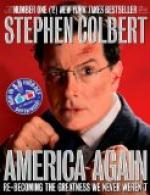In the awkward pause that followed his arrival he passed a general remark about dogs—there were several with us—and every one plunged into dog yarns, until Tam, losing his head over the success of his maiden speech, became so communicative on the subject of a dog-fight that he had to be surreptitiously kicked into silence.
“Looks like more rain,” Mac said abruptly, hoping to draw public attention from the pantomime. “Ought to get off as soon as possible, or we’ll be blocked at the King.”
The Katherine seized on the new topic of conversation, and advised “getting out to the five-mile overnight,” declaring it would “take all day to get away from the Settlement in the morning.” Then came another awkward pause, while every one kept one eye on Tam, until the Maluka saved the situation by calling for volunteers to help with the horses, and, Tam being pressed into the service, the boat was launched, and he was soon safe over the far side of the river.
Once among the horses, the little man was transformed. In the quiet, confident horseman that rode down the gorge a few minutes later it would have been difficult to recognise the shy, timid bushman. The saddle had given him backbone, and it soon appeared he was right-hand man, and, at times, even organiser in the difficult task of crossing horses through a deep, swift-running current.
As the flood was three or four hundred yards wide and many feet deep, a swim was impossible without help, and every horse was to be supported or guided, or dragged over in the rear of the boat, with a halter held by a man in the stern.
It was no child’s play. Every inch of the way had its difficulties. The poor brutes knew the swim was beyond them; and as the boat, pulling steadily on, dragged them from the shallows into the deeper water, they plunged and snorted in fear, until they found themselves swimming, and were obliged to give all their attention to keeping themselves afloat.
Some required little assistance when once off their feet; just a slow, steady pull from the oars, and a taut enough halter to lean on in the tight places. But others rolled over like logs when the full force of the current struck them, threatening to drag the boat under, as it and the horse raced away down stream with the oarsmen straining their utmost.
It was hard enough work for the oarsmen; but the seat of honour was in the stern of the boat, and no man filled it better than the transformed Tam. Alert and full of resource, with one hand on the tiller, he leaned over the boat, lengthening or shortening rope for the halter, and regulating the speed of the oarsmen with unerring judgment; giving a staunch swimmer time and a short rope to lean on, or literally dragging the faint-hearted across at full speed; careful then only of one thing: to keep the head above water. Never again would I judge a man by one of his failings.
There were ten horses in all to cross, and at the end of two hours’ hard pulling there was only one left to come—old Roper.




